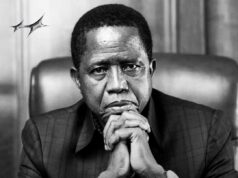Katy Perry (born October 25, 1984, Santa Barbara, California, U.S.) is an American pop singer who gained fame for a string of anthemic and often sexually suggestive hit songs, as well as for a playfully cartoonish sense of style.
Katy Hudson was raised in southern California, the middle child of two itinerant born-again Christian ministers. Nonreligious music was forbidden in the Hudson household, and she grew up singing church hymns and gospel tunes. As a teenager, she learned to play the guitar and sought a musical career in Nashville with a Christian record label, but her debut album, the gospel-influenced Katy Hudson (2001), sold poorly. By then, however, Hudson had found new musical models in such rock artists as Freddie Mercury and Alanis Morissette, whom she had discovered through friends. She soon moved to Los Angeles to pursue success in the secular music realm, adopting her mother’s maiden name, Perry, to avoid confusion with the actress Kate Hudson.
Perry’s initial efforts at mainstream stardom were fruitless, with two separate record labels signing and subsequently dropping her before any material was released. In 2007, however, Capitol Records put out Perry’s EP Ur So Gay, which attracted modest attention for its cheerfully flippant title track. She made a greater splash several months later with the single “I Kissed a Girl,” an assertive ode to sexual curiosity backed by a hard-edged electro-pop beat. The song quickly stirred controversy, as some critics derided it for promoting same-sex relations and others charged that the racy scenario it depicted catered to male fantasies of female sexuality. Nevertheless, the combination of titillation and polished melodicism helped “I Kissed a Girl” become a number one hit in multiple countries, powering sales for her album One of the Boys (2008). With its bouncy, sharp-tongued second single, “Hot N Cold,” also proving popular, the album—much of which Perry wrote herself—eventually registered sales of more than three million copies in the United States.
By late 2009 Perry had become frequent tabloid fodder, largely because of her quirky, vividly coloured fashions—which borrowed variously from 1940s pinup models, burlesque performers, and the kawaii (“cute”) cultural aesthetic of Japan—as well as her high-profile relationship with English comedian Russell Brand, to whom she was briefly married (2010–12). After recording the stripped-down live album MTV Unplugged (2009), Perry returned to the studio. The resulting release, Teenage Dream (2010), which provided a broader showcase for her full-throated voice, was even more commercially successful than One of the Boys, spawning such hits as the warm-weather frivolity “California Gurls” (featuring rapper Snoop Dogg) and the inspirational “Firework.” When “Last Friday Night (T.G.I.F.)” reached the top of the Billboard Hot 100 chart in mid-2011, Perry tied Michael Jackson’s record of five number one songs from a single album. She maintained her grip on the mainstream with her next release, Prism (2013), which produced, among other hits, the anthemic “Roar.” Her 2016 single “Rise” was featured in television coverage of that year’s Olympic Games in Rio de Janeiro. Perry’s fourth studio album, Witness (2017), more introspective than her earlier work, was less well received. She returned to mainstream pop with the empowerment-oriented Smile (2020).
While critics often disparaged Perry’s songs as vapid, the music industry was generally kinder, rewarding her with several Grammy Award nominations, including album of the year for Teenage Dream. In 2011 she made her big-screen acting debut, providing the voice of Smurfette in the film The Smurfs, and she reprised the role for a 2013 sequel. She was also the subject of the 3-D concert-tour documentary Katy Perry: Part of Me (2012). In 2018 Perry became one of the judges on the new incarnation of the singing competition TV show American Idol.
American Idol, American reality television series in which aspiring singers competed for a recording contract and a shot at wealth and fame. Following its debut on the Fox network, American Idol (2002–16) became one of the most-watched shows in the United States and produced numerous imitations. After a two-year hiatus, it returned to TV in 2018, airing on ABC.
The American Idol format was imported from the United Kingdom, where Pop Idol, the creation of music and television executive Simon Fuller, aired. Both shows followed the same premise: judges travel throughout the country in search of its most-talented singer. In the American version a series of auditions narrowed the candidates to a top few, who competed against each other on a studio set in Hollywood. Originally, contestants had to be between 16 and 24 years of age; the age rules were later modified, eventually allowing for performers aged 15 to 28. The early auditions tended to focus on the spectacle offered by tone-deaf contestants warbling before the judges. As the field of candidates narrowed, the show became a more-stylized showcase for talented contestants. The performers sang well-known pieces, which usually corresponded to a set theme that varied from week to week, and celebrity guests routinely made appearances on the show. In the contest’s final stages, the home audience—rather than the panel of judges—voted via telephone call, text message, or the show’s Web site and thereby decided the winner.
The show’s original lineup featured cohosts Ryan Seacrest and Brian Dunkleman and a panel of judges consisting of former pop star Paula Abdul, music producer Randy Jackson, and British music executive Simon Cowell. During the auditions the judges critiqued the performers in a predictable manner: Abdul’s comments were typically sympathetic, Jackson’s humorous, and Cowell’s biting. After American Idol’s first season (2002), Dunkleman left the program, and Seacrest became its sole host. The show’s eighth season (2009) saw a number of other changes to the show’s formula, most notably the addition of a fourth judge, songwriter Kara DioGuardi. Judges were also given the power to directly influence the final rounds of competition with the “judges’ save rule,” which allowed the panel to override the votes of the viewing public once per season to give a deserving contestant a second chance. In August 2009 Abdul left the show when contract negotiations with American Idol producers broke down, and she was replaced by Ellen DeGeneres. At the conclusion of the ninth season, in May 2010, Cowell left the program, and both DeGeneres and DioGuardi departed later that year. In later seasons Jackson was joined on the judging panel by such musicians as Jennifer Lopez, Steven Tyler (of Aerosmith), Mariah Carey, Keith Urban, Nicki Minaj, and Harry Connick, Jr. In 2014, his last year on the show, Jackson moved into a mentorship role, leaving the judging to Urban, Lopez, and Connick. In 2015 it was announced that the show would end with its 15th season. The final episode on the Fox network aired on April 7, 2016.




